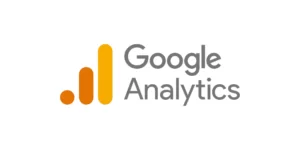
Google Analytics: Its Role In Marketing
Businesses of all sizes may evaluate and enhance the effectiveness of their website and digital marketing with Google Analytics. It might offer perceptions into your audience, including potential clients and buyers. Google Analytics, however, can be a frightening platform, particularly for marketers and enterprises that are just getting started.
Marketers that want to develop their marketing plan and gain a deeper understanding of their target market must know how to make the most of all the data that Google Analytics has to offer.
You may spend hours searching through the site without knowing which portions to focus on and wind up leaving with your head spinning.
Google Analytics: What is it?
For the purposes of search engine optimization (SEO) and marketing, Google Analytics is a web analytics service that offers data and fundamental analytical tools. Anyone with a Google account can use the service for free and it is a part of the Google Marketing Platform.
Starting off with Google Analytics is simple, and you can typically start tracking important online company indicators right away. The more you want out of Google Analytics, the more levels of complexity are available. It will be more helpful to you if you invest more time on it.
You have more opportunities for optimization, new ideas, and understanding how everything is connected in relation to the business as a whole the more relevant data you have from the channels.
Data is a key component of every digital marketing strategy, and having the appropriate tools in place before beginning any marketing campaigns ensures that you are getting the desired outcomes from it.
Google Analytics’s Importance In Digital Marketing
Professionals in digital marketing are being driven more than ever by Google Analytics. Business users can easily measure website visitors, optimize web content, and do much more with the help of this free web data analysis application.
As a result, Google Analytics is demonstrating to be a vital difference, especially for digital marketing specialists who want to assist organizations in inspiring customer loyalty and generating sustainable revenue growth.
It truly comes down to making the connections, as we’ve already mentioned. based on how users arrive at your website, what they do, whether they convert, and whether you keep customers and clients. Google Analytics will assist you in:
- Assess the likenesses and distinctions between user groups.
- Determine and observe seasonal trends
- Gain a deeper understanding of your prospects and clients.
- Compare and assess your marketing initiatives.
- Information for your content strategy
- Determine the obstacles to conversions and sales
- Look for ways to make your website and marketing better.
- Automated observations based on machine learning from Google.
Advantages of Google Analytics
- Track Online Traffic
- Understand User Behavior
- Offline to Online Tracking
- Data Reports And Customization
- Improve Online Advertising With Marketing Analytics
- Improve Search Engine Optimization And Content Marketing
- Google Analytics Conversion Tracking
- Find Your Target Audience
- Google Analytics Cost
- Google Analytics Improves Websites
- Easy to start
- New Ideas For Business
- eCommerce Performance
The Purpose Of Analytics
Today, adopting analytics tools is a no-brainer for digital marketers for a variety of reasons. For that, here are three of the more significant causes:
Helps you make decisions based on data
By making data-driven decisions, marketers may leverage the information found by analytics tools to improve the effectiveness of their channels and websites. These are the steps we take to enhance performance based on how well we understand the data we’ve gathered; in other words, the data drives the decision. This is an excellent method for using reason to boost performance. While following data-driven judgments is recommended, we must constantly remind ourselves to “trust but verify.”
Simplifies reporting
Web analytics is a valuable information source that aids in decision-making as well as reporting back to key stakeholders on the effectiveness of campaigns and websites in connection to your digital marketing activities. In the end, marketers aim to create a fake situations that result in financial gains for their businesses or clients. Using web analytics software, you may measure the data trends you notice and take appropriate action.

